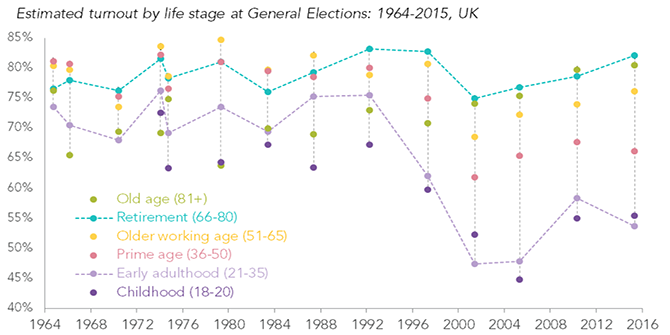 It is completely disingenuous, sexist even, to deny that Yvette Cooper’s family circumstances, as a mother of three, could make a difference to her as a female political leader, writes Siva Thambisetty. There is nothing wrong in acknowledging that motherhood often forges qualities that we may value not just in the workplace, but also in the social and emotional ecology of political life.
It is completely disingenuous, sexist even, to deny that Yvette Cooper’s family circumstances, as a mother of three, could make a difference to her as a female political leader, writes Siva Thambisetty. There is nothing wrong in acknowledging that motherhood often forges qualities that we may value not just in the workplace, but also in the social and emotional ecology of political life.
Labour leadership contender Yvette Cooper was recently criticized by Liz Kendall’s allies for emphasizing that her experience as a mother was relevant to her candidacy. Cooper didn’t make this point explicitly, but implied it by retweeting MP Helen Goodman’s article that backed her because ‘as a working mum she understands the pressures on modern family life’.
So the ‘working mother’ versus ‘childless woman’ trope has reared it’s ugly head again, and this is a good opportunity to look at it more closely because the reason it is ugly has less to do with Yvette Cooper’s badge of honour or the Labour leadership election, and more to do with how this trope masks the political relevance of the maternal experience.
Conceiving, bearing, having and raising children takes up huge amounts of emotional, physical and cognitive energy, day and night. How can we possibly think that this will not affect political views, perspectives on social issues, personality even? I do not know one mother who has not been changed fundamentally by the process of having children.
If you believe those who are not career politicians and who have some experience of working life outside Westminster are better suited to a life where an empathic response to social problems can be an asset, then how can we be blind to the qualities of a working woman, who has risen to the top ranks of the Labour party while raising three children at the same time?
I have some idea of the tenacity, fatigue, frustration and discipline that must involve; and therefore yes, I do believe Yvette Cooper may have more to say about some of the decisions I face as a working mother, than someone who does not have that experience.
Along the same lines, I believe Alan Johnson would have made the best Labour leader of our times because of his considerable trade union experience. Leadership appeal is not at all just about policy; at a time of political disenchantment, what you’ve been through personally matters even more.
Shared experience does not mean we share all of the same political ideas, and I have no strong feelings about the optimal outcome of the Labour contest. I just think it’s completely disingenuous, sexist even, to deny that Yvette Cooper’s family circumstances could make a difference to her as a female political leader.
To push for a position where her role as mother to three is effaced from public life is part of the ambient culture of sexism in the professional world, which even today is a very difficult place for an ambitious woman, with or without children.
It should not be taboo to talk about the professional value of maternal experience in the work place, even if it makes men and women who do not have children in the same workplace uncomfortable. In this case, there is nothing wrong in acknowledging that motherhood often forges qualities that we may value not just in the workplace, but also in the social and emotional ecology of political life.
An important part of this conversation is to also acknowledge that a lot of men who have families and rise to the top of their profession often rely on the stay at home, or part time working mother to carry the burden of school pick ups, play date management, homework, and more. Other things being equal, it is all but guaranteed that a man with children and a woman with children who have both done well professionally will have had to go about it differently, and those differences tell us something important about prospective political leadership.
Liz Kendall is absolutely right that we should be asking men precisely the same questions as we ask the women. However, the fact that we don’t does not make it right that we disavow the achievement of working mothers.
When men start taking their share of the burden of raising a family, when we acknowledge the grueling effort and creative compromises that go into juggling work and child rearing, when we change our employment and progress structures to be truly reflective of both men and women’s ambitions, when we truly level our playing fields, then and only then could I ever agree that Yvette Cooper’s experience of being a working mother in the political world is not relevant.
To reiterate, I agree with Liz Kendall – let’s treat men the same way, and acknowledge their personal circumstances, but while we are still fighting for equality, let’s not ignore the political relevance of being a working mother.
Note: A version of this article also appeared on openDemocracy.
 Siva Thambisetty is a mother and is associate professor in law at the London School of Economics. She tweets from @sivathambisetty.
Siva Thambisetty is a mother and is associate professor in law at the London School of Economics. She tweets from @sivathambisetty.





